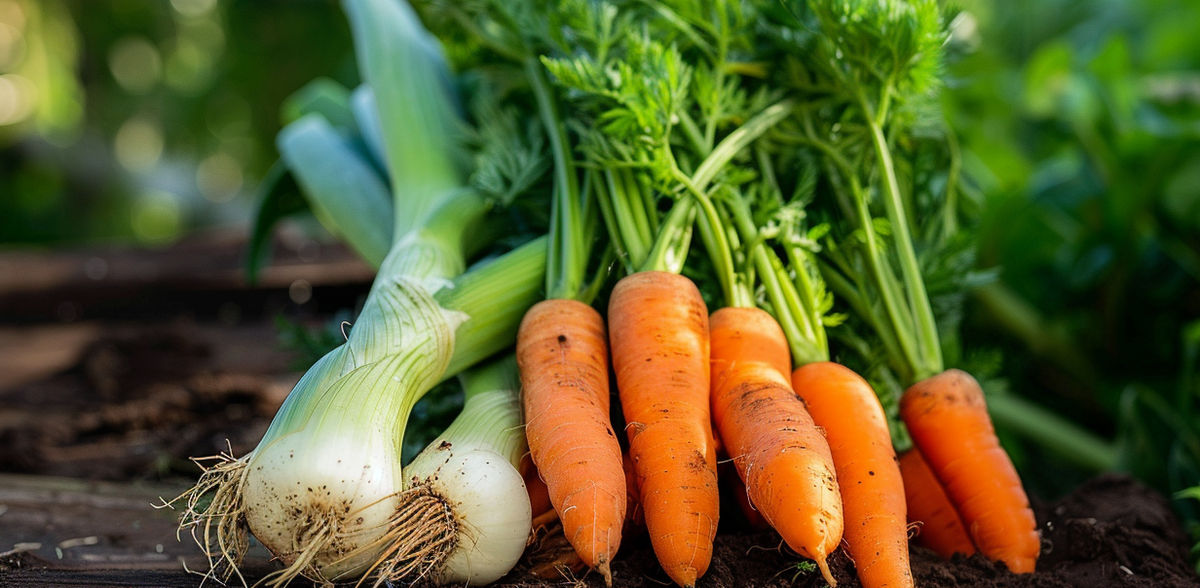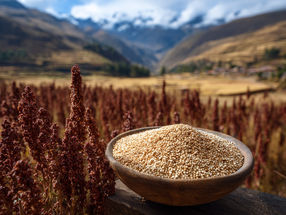"Organic climate vegetables": how do carrots and leeks get by with less water?
Unlike cereals, vegetables are dependent on irrigation, which is why hot, water-poor summers pose a particular threat to yields. The "Organic Climate Vegetables" project at the University of Kassel is now investigating how the organic cultivation of carrots and leeks can manage with less irrigation. The project is also important for the planned Innovation Center for Agricultural System Transformation (IAT).
The researchers will be testing various methods for growing leeks and carrots at the Hessian State Domain Frankenhausen. For example, they will experiment with flatter and wider carrot ridges instead of individual ridges and investigate mulching, i.e. covering the spaces between rows of vegetables with organic material. This should reduce water requirements - by how much remains to be seen.
However, the scientists are not only investigating how the plants can manage with less additional water, but also how these products can be processed and marketed in the region.
The project is organized in the form of a junior research group with 2 doctoral positions. It started on February 1, runs until 2026 and is funded by the state of Hesse with 700,000 euros as part of the Eco Action Plan. The departments involved are Organic Agriculture and Crop Production, Business Administration, Sustainability Management in the International Food Industry and Agricultural and Food Marketing. The group is headed by Prof. Dr. Miriam Athmann.
The funding of the junior research group also serves to prepare an Innovation Center for Agricultural System Transformation (IAT) with the University of Giessen and Hochschule Geisenheim University. Two other junior research groups on circular cattle farming systems (Giessen) and agroforestry in viticulture (Geisenheim) are running in parallel.
Most read news
Other news from the department science

Get the food & beverage industry in your inbox
By submitting this form you agree that LUMITOS AG will send you the newsletter(s) selected above by email. Your data will not be passed on to third parties. Your data will be stored and processed in accordance with our data protection regulations. LUMITOS may contact you by email for the purpose of advertising or market and opinion surveys. You can revoke your consent at any time without giving reasons to LUMITOS AG, Ernst-Augustin-Str. 2, 12489 Berlin, Germany or by e-mail at revoke@lumitos.com with effect for the future. In addition, each email contains a link to unsubscribe from the corresponding newsletter.





























































